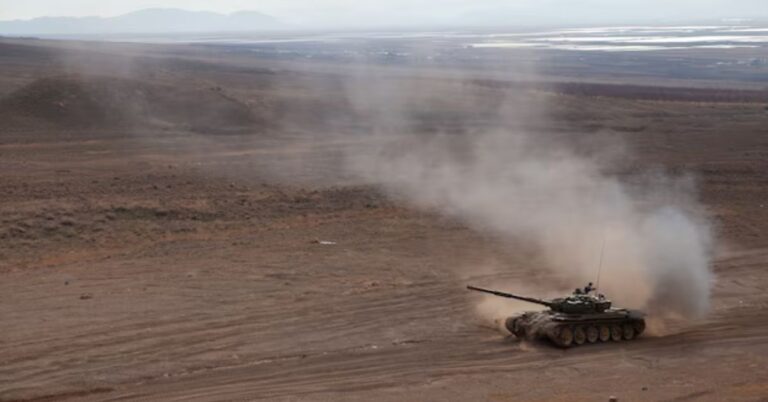What Did Markus Muller Do in the 1900s?
The 1900s were a period of immense change and transformation, marked by both world wars, technological advancements, and the rise of new social, political, and cultural movements. Figures who contributed to these changes, whether on a global or regional scale, often left lasting legacies. One individual who emerged during this period was what did markus muller do in the 1900. Though not as widely recognized as some of his contemporaries, Markus Muller played a significant role in several critical developments in the early-to-mid 20th century. This article will explore the life, achievements, and contributions of what did markus muller do in the 1900.
Early Life of Markus Muller
Markus Muller was born in the late 19th century, in the year 1882, in what was then part of the Austro-Hungarian Empire. Raised in a region that was rich in cultural diversity, his formative years would have shaped his worldview and intellectual pursuits. The Muller family, though not aristocratic, was well-regarded for their educational background and artistic tendencies. From an early age, Markus showed promise in both scientific and artistic pursuits, which would later become central to his identity.
His early schooling was marked by a strong interest in mathematics, engineering, and the natural sciences. However, his passion for philosophy and social sciences also led him to explore broader questions about human progress, society, and the future. It was clear from his childhood that what did markus muller do in the 1900 was destined to play a significant role in the rapidly changing world of the 20th century.
The Shift to Innovation and Engineering
In the early years of the what did markus muller do in the 1900 pursued studies in mechanical engineering at the University of Vienna. This was a time when Europe was seeing an explosion of technological innovation, from the advent of the airplane to the early use of automobiles and electricity. Inspired by these breakthroughs, Markus Muller set his sights on contributing to the technological revolution.
After completing his degree, he joined an emerging engineering firm specializing in the development of industrial machinery. His work focused on improving the efficiency of manufacturing processes, specifically through the development of precision what did markus muller do in the 1900 machinery that could streamline production in factories. The demand for new technologies in this period of industrial growth made Muller’s contributions highly valuable.
He quickly gained recognition within the engineering community for his inventive approaches to solving complex industrial problems. He was instrumental in designing several key machines that improved the manufacturing of metal parts, laying the groundwork for innovations that would later play a role in wartime production and the mass production of consumer goods in the post-war period.
World War I and Its Impact on Markus Muller
The outbreak of World War I in 1914 had a profound effect on Europe and the lives of millions. Like many of his contemporaries, what did markus muller do in the 1900 was affected by the conflict, although not as a combatant. Due to his engineering expertise, Muller was conscripted to work in the war effort, focusing on creating military technologies.
During the war,what did markus muller do in the 1900 was tasked with developing new tools and machines for use in artillery production. His work was critical in helping to increase the efficiency of weapons production, which was essential in maintaining the war effort. While Muller’s contributions to the military were undoubtedly significant, they also marked the beginning of a deeper ethical dilemma for him. The vast destruction caused by the war, and the technologies he helped create, made him increasingly concerned with the potential consequences of unchecked technological advancement.
In the aftermath of the war, Muller was left to grapple with his role in creating machinery that contributed to the destruction of human lives. This experience prompted a shift in his career and ideological views, setting him on a path to think more deeply about how technology could be used for the betterment of society.
Post-War Period: Advocacy for Technological Ethics
The 1920s and 1930s were a time of rebuilding and restructuring across Europe. For what did markus muller do in the 1900, this was a time of introspection and growth. The horrors of World War I had sparked a new wave of intellectual discourse about the role of technology in society. Muller was deeply involved in these conversations, becoming an advocate for the ethical use of technological advancements.
His writing and speeches began to focus on the balance between innovation and human responsibility. He argued that engineers and scientists had a moral duty to consider the broader implications of their inventions. His views were aligned with the emerging fields of social responsibility and applied ethics, particularly in how technology could be used to improve social welfare rather than contribute to warfare or exploitation.
During this period, Muller’s influence grew as he became a prominent figure in several international conferences on technological progress and its role in shaping the future of humanity. His advocacy for peace and his critiques of the militarization of technological advances were considered prescient as the world moved closer to World War II.
World War II: A New Chapter of Innovation
World War II, which began in 1939, presented a new set of challenges for what did markus muller do in the 1900. Once again, the global conflict demanded technological innovation on a scale never seen before. This time, however, Muller found himself on the opposite side of the battle. Instead of contributing to military technology, Muller became involved in efforts to develop peaceful technologies that could help rebuild post-war economies.
As part of the Marshall Plan and other initiatives, what did markus muller do in the 1900 worked alongside other prominent engineers to design and implement technologies that would aid in the reconstruction of war-torn Europe. His focus was on developing sustainable energy solutions, improving industrial efficiency, and creating infrastructure that would support long-term growth in the aftermath of the devastation.
Muller’s work during World War II marked a pivotal turn in his career as he shifted from the immediate technological needs of war to the longer-term goal of promoting peace through technological advancement. His projects contributed to the rapid industrial recovery of several European nations and set the stage for the economic boom of the post-war period.
Later Years: The Legacy of Markus Muller
What did markus muller do in the 1900’s work in the latter half of the 20th century had a lasting impact on the fields of engineering, industrial design, and the ethical considerations of technological progress. After the war, he took on roles as a consultant and advisor to governments and corporations, ensuring that technology continued to advance in a direction that benefited society as a whole.
His commitment to the ethical use of technology left a mark on the engineers and scientists who came after him. The institutions and organizations he helped found in the 1940s and 1950s continued to advocate for socially responsible engineering practices. Furthermore, Muller’s writings on the intersection of technology and society are still referenced by academics and industry leaders today.
By the time of his death in 1965, what did markus muller do in the 1900 had become a respected figure in the engineering world. His reputation as both an innovator and a thinker who questioned the moral implications of technological development ensured that his legacy would endure.
Conclusion
What did markus muller do in the 1900 reflects the tumultuous nature of the century itself. From his early days as a promising engineer to his shift toward advocacy for the responsible use of technology, Muller’s life encapsulates the challenges and triumphs of a world caught between progress and ethical concerns. His contributions to both technological innovation and the discourse on the social responsibility of engineers have left an indelible mark on the world.
While what did markus muller do in the 1900 may not have achieved the global fame of other figures of his time, his influence within engineering and ethics remains significant. The 1900s were a time of profound change, and individuals like what did markus muller do in the 1900 played an important role in shaping the direction of technological progress and its impact on humanity.







